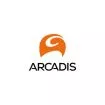- with readers working within the Environment & Waste Management industries
Amid the bustling streets and dense urban sprawl of Beirut, Lebanon's Badawi district lies a forgotten fragment of the city's history: the Mar Mikhael railway corridor. Once a vital artery connecting people and goods, this space has now fallen into disrepair. Once situated on the city's outskirts, the tracks are now surrounded by residential blocks, including colonial and late Ottoman buildings. The corridor, cramped between the backsides of buildings, has become little more than a makeshift parking lot, a storage space, and a neglected walkway.
But this abandoned space carries more than just remnants of its industrial past. It holds untapped potential as one of the few strategic green areas in the neighborhood, offering hope for a community in desperate need of connection, recreation, and resilience. The challenge was clear: How can this derelict railway be transformed into a vibrant public space that honors Beirut's rich heritage while addressing the pressing needs of its residents?
A Vision of Transformation
UN-Habitat and UNESCO have started a project funded by the Italian Agency for Development Cooperation (AICS) to rehabilitate the buildings and open spaces within a 10,000 sqm section of the Mar Mikhael train station. Through the Shelter Program, Arcadis joined forces with UN-Habitat to reimagine the northernmost section of the railway corridor. The vision was bold yet deeply rooted in the needs of the community: to develop concept design for a linear park that would become a hub of activity, a refuge of greenery, and a celebration of history.
This was not just about building a park. It was about creating a space where people could come together, a place where children could play safely, where neighbors could connect, and where the community could flourish.
Drawing on extensive field studies, designs, and stakeholder input, the Shelter team developed a concept that embraced both the heritage of the railway and the aspirations of Badawi's residents. The park's design would weave together elements of culture, sustainability, and accessibility, bringing new life to a space long forgotten.
A Park for People and the Planet
The vision for the linear park is one of balance, between the old and the new, between busy and quiet, between nature and the built environment. Along the length of the corridor, the park will offer a variety of spaces, each designed to meet the needs of the community while preserving the character of the area.
In one section, lush gardens will feature indigenous plants and kitchen gardens, creating a green sanctuary that reflects the region's natural heritage. In another, play areas and fitness equipment will provide spaces for children and adults to move, laugh, and connect. A bike repair station and improved walkways will make the park a safe and sustainable route for commuters, while shaded seating areas invite residents to pause and enjoy the surroundings.
The park's design also tackles one of the area's most pressing challenges: water pooling during storms. Using nature-based drainage solutions like permeable paving and vegetated open channels, the design ensures the park remains resilient to climate challenges, protecting both the space and its users.
Throughout the corridor, the park will celebrate the legacy of the railway. The patterns of track junctions will be subtly embedded into pathways, the original tracks will be preserved as visual anchors, and tactile heritage models will invite visitors to explore the story of Beirut's industrial past.
A Space for Connection and Resilience
Transforming the Mar Mikhael railway corridor is not just a physical project, it's a social one. For the Badawi neighborhood, the park will become a place where life happens. It will be a space where local schools bring children to learn and play, where families gather for picnics, and where small businesses and not-for-profit organizations can thrive.
By improving accessibility, the park ensures that everyone, regardless of age or ability, can enjoy its benefits. It will be a safe, welcoming space in a city where public green areas are rare, a true gift to Beirut's people. But the impact of this park will go beyond the neighborhood. By addressing climate challenges with passive and sustainable drainage solutions, it sets a precedent for how cities like Beirut can adapt and thrive in the face of global environmental challenges.
Honoring the Past, Inspiring the Future
At its heart, this project is a story of resilience, of a space that has endured decades of neglect, of a city that continues to rebuild, and of a community determined to create a brighter future. Through this collaboration, the Mar Mikhael railway corridor will be transformed from a forgotten relic into a vital lifeline for the Badawi district.
The content of this article is intended to provide a general guide to the subject matter. Specialist advice should be sought about your specific circumstances.

